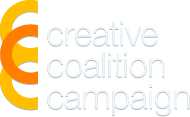John McVay, Chief Executive of Pact, welcomes a new study published by Carnegie Mellon University looking in detail at the effectiveness of site blocking orders.
The UK’s creative industries are a key growth sector and one of the fastest growing parts of our economy. The statistics are now well rehearsed by industry representatives and politicians alike: 1.7 million jobs, £76.9 billion gross value added (five per cent of the UK economy), nearly 9 per cent of UK service exports. The success of this sector underpins the livelihoods and security of millions of working people and their families as well as providing a flourishing cultural heritage for our country.
This growth potential was further highlighted this week by a new report from PwC predicting substantial growth in the digital media sector. The report focuses on the online space where much of the future jobs growth and prosperity will come from. That is why it is so important to have an online environment that ensures creators are able to monetise their work and reinvest the revenues in new content.
Unfortunately the problem of copyright theft online continues to bleed money out of the legitimate creative economy and into the hands of criminals. Tackling the illegal websites that perpetrate this theft is critical but their operators are often based overseas and difficult to take direct action against. That is why the use of court orders requiring UK internet service providers to block access to these sites has become an important tool for content creators.
A new study published this week by Carnegie Mellon University in the US has looked in detail at the effectiveness of these site blocking orders. It found that the blocking of a group of 19 illegal sites in October / November 2013 caused the heaviest users of those sites to switch to using paid legal streaming services (such as Netflix) by as much as 23 per cent. That means more money going back to those who invested in and worked to create the original content.
These findings follow a previous study published by online rights protection company Incopro that found that lost nearly three-quarters (73.2%) of their traffic.
It is hugely encouraging to see this progress being made but there is still a lot more to do. Blocking illegal sites is just one element of a much broader strategy. It is also important to educate consumers about the importance of copyright and where they can access legal content, and intermediaries such as search engines, advertisers and payment processors all have critical roles to play.
Nevertheless, these findings show that progress is being made and creators’ efforts to protect their rights and their incomes online are not in vain.
John McVay is Chief Executive of Pact, a member of the Creative Coalition.
